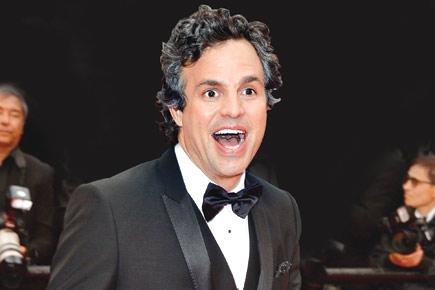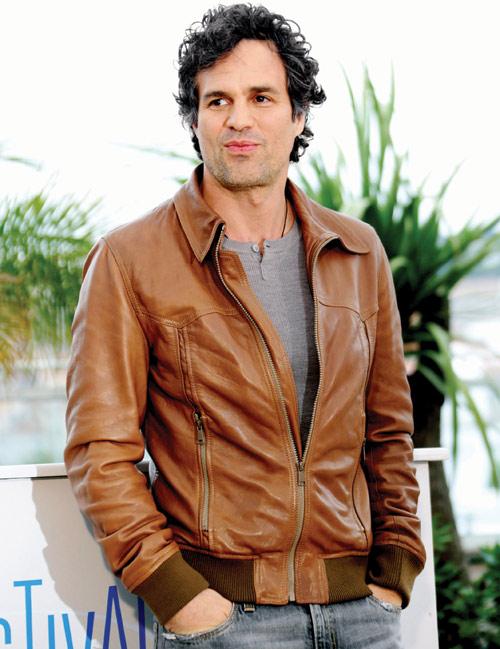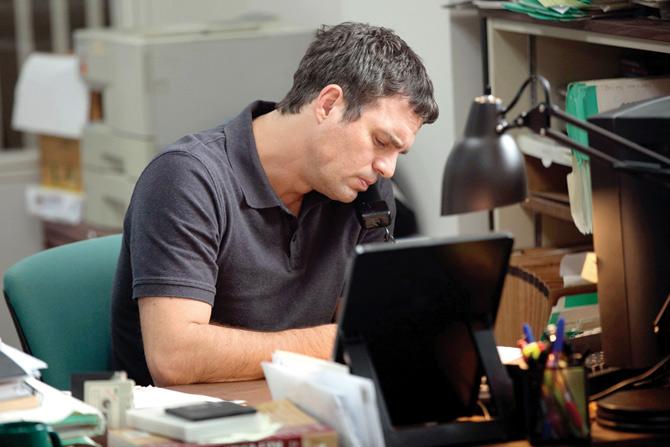Mark Ruffalo on being misunderstood for his deep involvement with social causes; also shares his excitement over his upcoming Oscar-nominated movie, 'Spotlight'

Mark Ruffalo's range and versatility as an actor is undeniable. After being catapulted to worldwide commercial success, thanks to his hugely popular stint as Hulk in 'Avengers', the actor is back in the reckoning for his role in the Oscar-nominated film, 'Spotlight'. From his breakthrough character in 'You Can Count On Me' (2000) to the psychological thriller 'Shutter Island' (2010), the star from Wisconsin has come a long way. In an exclusive conversation with hitlist, Mark talks about his role in Spotlight, his experience in showbiz and his many social concerns. Excerpts:

Mark Ruffalo. Pic/Gettyimages
ADVERTISEMENT
Q. How did you move so dramatically from a role in 'Foxcatcher' (2014) to this?
A. I study people (laughs). I was lucky; I had Mike Rezendes here, this living person to study and to embody. We think no one is doing anything, but even the way you are sitting says a lot about you. We don't always realise it, but we get a lot of information from people seemingly doing nothing, and I think very early on, I became aware of that and have been interested in that as an actor.
Q. Did 'Spotlight' change your perception of journalism in any way?
A. I already had a strong love for true journalism, but I got a much deeper understanding of it, and the discipline of it — the discerning sort of methodology that you use your passions to power an investigation that's devoid of passion. I have always had a deep respect for journalism… for true journalism, for an unflinching quest for the truth, as objectively as that can possibly be given to people.

Mark Ruffalo in a still from 'Spotlight'
Q. How did you react when director Tom McCarthy first approached you for the film?
A. I was really excited. I knew the story, of course, and I love him as a filmmaker. When I heard about who I was playing, I began researching him as well, and was hoping that it would be as good as it was when the script came to me. So, I was extremely excited and I knew they were trying to decide who would play the part for some time. When it came my way, I was thrilled to be able to read it and see if it was going to be as good as I thought it would be. And it was.
Q. How much time did you spend with Mike, the reporter you play?
A. On many days, we were together all the time. It was probably 10 days altogether, of just hammering him and he said to me, 'Yeah, it's strange to have the tables turned' (laughs).
Q. Do you think you could have been a good journalist?
A. (Laughs) Probably not. I think I am too passionate, maybe, or I get too worked up. The discipline of the journalist was really remarkable to me. I'd like to assume a little bit more of that.
Q. When do you think the tide started to turn in your favour as an actor?
A. When I wanted to quit acting, and I feel like I had quit acting inside my heart, that's when it changed. When I stopped caring about it, or when I stopped wanting to be liked or loved, or whatever.
Q. When was that?
A. That was around 'The Kids Are Alright' (2010). It was going to be my last movie, and then everybody was like, 'No, you can't stop acting now' (laughs). But I did. I was like, 'This is my last movie, I don't give a s*** anymore. I want to direct, I have lost my love for this'. But when I did that, all of a sudden, it became fun again, and I didn't care, and I did what I wanted. I thought I don't have to please anybody. I just became free at that moment.
Q. What was special about 'The Kids Are Alright' that you wanted it to be your last film?
A. For me, it was a homage to my brother, because he was very much like that character. And I felt like it was an important movie, culturally, at the time. It was a movie that was coming out of the culture at a very specific moment during a discussion about gay marriages. I saw it as an important movie at a moment where culture was asking for that, and so I was drawn to that aspect as well. I had already been in the fight for gay marriage — for marriage equality. I thought, okay, I get to do this. I get to honour my brother. I get to say goodbye. It will be doing what I think the power of cinema can do, sometimes, on one aspect. But then I was watching it with a group of people and I heard them laughing, and I saw them moved, and I went (gasps), 'There's the food. I have been eating the package the whole time'.
Q. What was the plan after that?
A. I didn't know if I was going to move to writing. I didn't know what I was going to do — maybe become a farmer; I had the farm at that point. I really wanted to direct; that's what I really wanted to do.
Q. Are you religious?
A. No, I'm not.
Q. So there was no moral dilemma about making 'Spotlight'?
A. No, and I was raised Catholic. I see this as an opportunity for the Church to gain credibility. One of the sad things about this movie is not just the victims — and that is plenty sad and should be dealt with — but also the people who lost their faith because of seeing the way the Church has behaved. That's as devastating in many respects. Well, not as devastating, but certainly devastating to a lot of people who left the Church, and got a lot from the Church in their community because of this. I see this as a wonderful opportunity for the Church to begin to repair the damage that they have inflicted on people — to say sorry, to bring people to justice, to pay people money, to do whatever they need to do to begin to heal the wound that was inflicted. And they did it! It wasn't the journalists' fault. The journalists are doing what they are supposed to do.
Q. What other issues do you like to support as an actor?
A. Climate change, fossil fuel extraction and the extreme energy extraction that we are in now. The NSA spying on people, the persecution of Baha'is in Iran and of Muslims in America, blockade of aid to Palestinians who are suffering — those are things that are in the social justice realm that I am attracted to. Because I have seen it happen — I have seen victims of hydrofracking not listened to, except when I am standing next to them, and then all of a sudden the media is interested in them. Someone who didn't have a voice at one point now has a voice, because I get to take the spotlight that's on me and pull them into it (laughs). So, what am I going to do with the gift that I have been given? Am I just going to have a great time and make more money out of it? Or am I going to use it for what I think is beneficial to the world? Other people hate me and think I am an idiot and have no right or place to be talking about any of this stuff.
Q. Marlon Brando used his fame in a similar way, didn't he?
A. Yeah, because we were taught by him — and Stella Adler too. They taught us that you have responsibility as an artiste to be part of the world.
Q. Do these social concerns influence your choice of films?
A. Sometimes. You will run across something occasionally, like this, where I think it can have an impact, and also the culture has got to be ready for it. This movie doesn't just accidentally pop up at this moment in time. The Kids Are Alright didn't just accidentally pop up at that moment in time either. It's something that percolates. Movies come out of the culture. So, I just happened to be in the right place at the right time for these two movies.
 Subscribe today by clicking the link and stay updated with the latest news!" Click here!
Subscribe today by clicking the link and stay updated with the latest news!" Click here!







